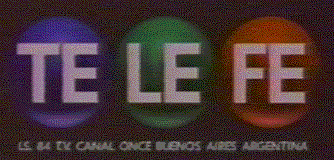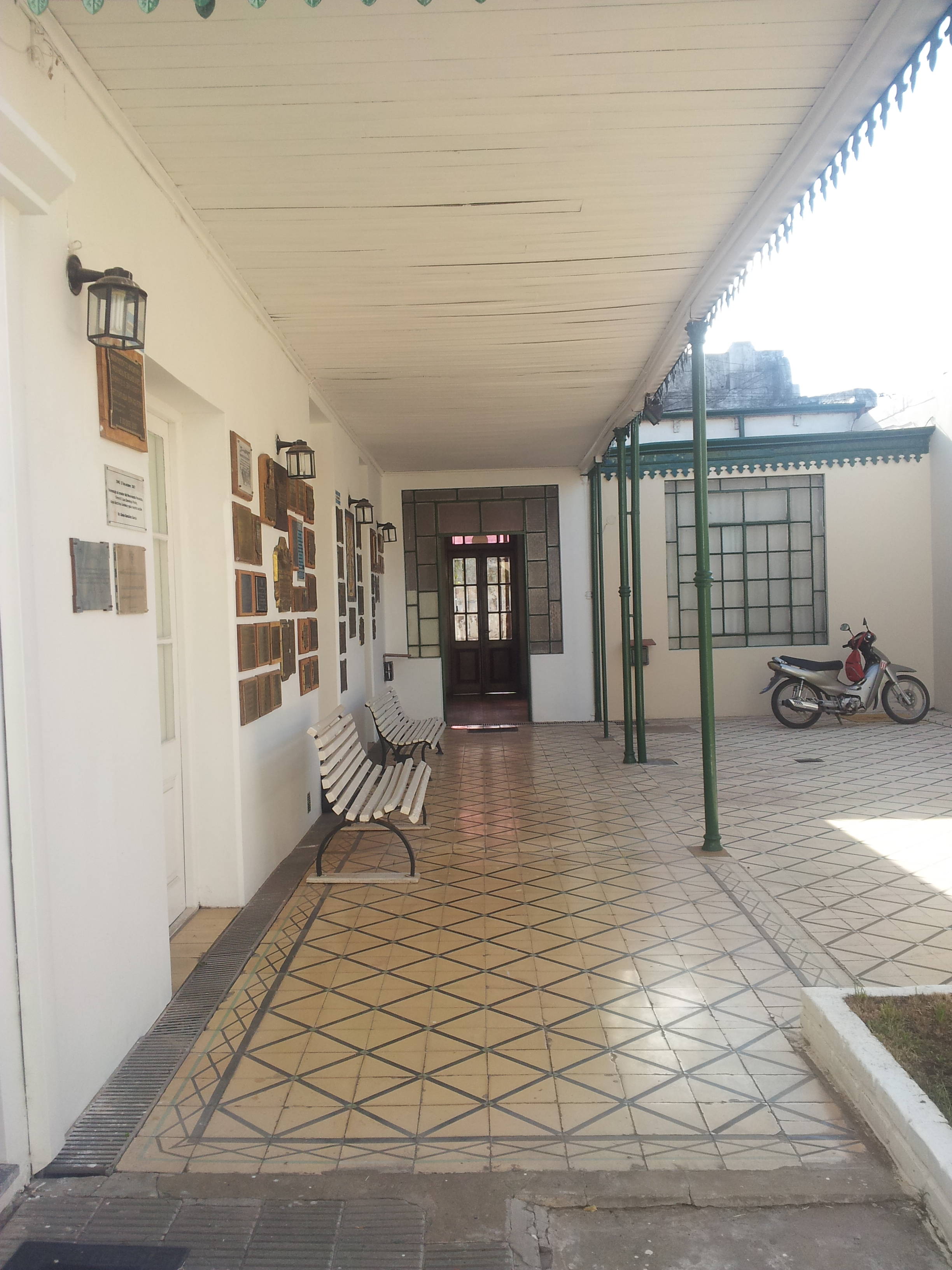|
Jorge Taiana
Jorge Enrique Taiana (born 31 May 1950) is an Argentine Justicialist Party politician who served as the country's Minister of Defense from 2021 to 2023. Taiana previously served as Foreign Minister in the administrations of President Néstor Kirchner and his successor, Cristina Fernández de Kirchner, from 2005 to 2010, and as a National Senator for Buenos Aires from 2019 to 2021. His father was Jorge Alberto Taiana, colleague and physician of former President Juan Perón. Early life Jorge Taiana was born in Buenos Aires as the fourth and second youngest child of Matilde Puebla and Jorge Alberto Taiana. His father was a prominent Argentine surgeon who later served in a number of social policy posts for President Juan Perón, as well as one of his personal physicians. He attended the Colegio Nacional de Buenos Aires, studied sociology, and was awarded a Master's Degree in Social Sciences at the Latin American Social Science Institute (FLACSO). He was later a researcher at the N ... [...More Info...] [...Related Items...] OR: [Wikipedia] [Google] [Baidu] |
Ministry Of Defense (Argentina)
The Ministry of Defense (; abbrevriated MINDEF) of Argentina is a ministry of the national executive power that oversees and advises on matters of national defense, including overseeing the Argentine Armed Forces. The Ministry of Defense is one of the oldest ministries in the Argentine government, having existed continuously since the formation of the first Argentine executive in 1854, in the presidency of Justo José de Urquiza (then known as the Ministry of War). The incumbent minister is Luis Petri, who has served since 10 December 2023 in the cabinet of Javier Milei. History Traditionally the minister of Defense, as the Joint chiefs of Staff (Spanish: ''Estado Mayor Conjunto'') which traces back its origin to 1948 had a minor role in all armed forces activities, relegating key decisions to the respectives chiefs of staff. A major change came into effect on 12 June 2006 when President Néstor Kirchner brought into effect the Defense Law, which had been passed in 1988 ... [...More Info...] [...Related Items...] OR: [Wikipedia] [Google] [Baidu] |
Frente De Todos
The Frente de Todos (translated as "Everyone's Front") was a centre-left political coalition of political parties in Argentina formed to support President Alberto Fernández and Vice President Cristina Kirchner. Fernández won the 2019 general election with over 48% of the vote, defeating incumbent Mauricio Macri in the first round. The coalition currently holds a minority in both the Argentine Senate and the Chamber of Deputies; in both houses it is conformed as a unified bloc. It was replaced by Unión por la Patria in June 2023, in order to compete in the general election on October of that year. Ideology The Frente de Todos is a coalition that seeks to create a union of all sectors of Peronism (including Kirchnerism), progressivism and social democracy, including centrist political parties, centre-left and left-wing Left-wing politics describes the range of Ideology#Political ideologies, political ideologies that support and seek to achieve social equa ... [...More Info...] [...Related Items...] OR: [Wikipedia] [Google] [Baidu] |
Peronist
Peronism, also known as justicialism, is an Argentine ideology and movement based on the ideas, doctrine and legacy of Juan Perón (1895–1974). It has been an influential movement in 20th- and 21st-century Argentine politics. Since 1946, Peronists have won 10 out of the 14 presidential elections in which they have been allowed to run. Peronism is defined through its three flags: "economic independence" (an economy that does not depend on other countries, by developing its national industry), "social justice" (the fight against socioeconomic inequalities) and " political sovereignty" (the non-interference of foreign powers in domestic affairs). Peronism as an ideology is described as a social form of nationalism, as it pushes for a sense of national pride among Argentines. However, it promotes an inclusive form of nationalism that embraces all ethnicities and races as integral parts of the nation, distinguishing it from racial or chauvinistic ethno-nationalism that priori ... [...More Info...] [...Related Items...] OR: [Wikipedia] [Google] [Baidu] |
Telefe
Telefe (acronym for Televisión Federal) is a television station located in Buenos Aires, Argentina. The station is owned and operated by Paramount Global through Televisión Federal S.A. Telefe is also one of Argentina's six national television networks. Its studios are located in Martínez, Buenos Aires, Martínez, Buenos Aires, adjacent to the corporate headquarters; its transmitter is located at the Alas Building. In areas of Argentina where a Telefe station is not receivable over-the-air, it is available on satellite and select cable systems. Telefe also has regional stations across the country and an international network (Telefe Internacional) which is available in the Americas, Europe, Asia, and Oceania. History First years (1957–73) The history of Telefe stretches back to 1957, when a group of alumni and lawyers from the Colegio El Salvador led by Fr. Héctor Grandetti, founded the company ''Difusión Contemporánea S.A.'' (Contemporary Broadcasting S.A.). This com ... [...More Info...] [...Related Items...] OR: [Wikipedia] [Google] [Baidu] |
Human Rights In Argentina
The history of human rights in Argentina is affected by the National Reorganization Process, last civil-military dictatorship in the country (1976-1983) and its aftermath. The dictatorship is known in North America as the "Dirty War", a named coined by the dictatorship itself to justify their actions of State-sponsored terrorism against Argentina, Argentine citizenry, which were backed by the United States as part of their planned Operation Condor, and carried out primarily by Jorge Rafael Videla's ''de facto'' rule (1976-1981), but also after it and until democracy was restored in 1983. However, the human rights situation in Argentina has improved significantly since the end of the dictatorship. History According to the ''Nunca Más'' report issued by the National Commission on the Disappearance of Persons, National Commission on the Disappearance of Persons (CONADEP) in 1984, about 9,000 people had "disappeared" between 1976 and 1983. According to a secret cable from Central Na ... [...More Info...] [...Related Items...] OR: [Wikipedia] [Google] [Baidu] |
National University Of Quilmes
The National University of Quilmes (, UNQui) is an Argentine national university and the most important one in the Quilmes area. The National University of Quilmes was founded on October 23, 1989. Located in Bernal ( Quilmes County), it serves the Southern Buenos Aires Metropolitan Area, home to three million people and 20% of the country's industrial establishments. The UNQ has over thirty thousand students, distributed among its undergraduate courses and graduate courses of study. The university maintains 18 undergraduate programs (including seven through its virtual university program established in 1998), as well as four master's degree programs and two doctorate A doctorate (from Latin ''doctor'', meaning "teacher") or doctoral degree is a postgraduate academic degree awarded by universities and some other educational institutions, derived from the ancient formalism '' licentia docendi'' ("licence to teach ...s (Applied Sciences and Social Sciences). The university's stated ... [...More Info...] [...Related Items...] OR: [Wikipedia] [Google] [Baidu] |
FLACSO
The Latin American Faculty of Social Sciences (, or FLACSO) is a graduate school, graduate-only university and inter-governmental autonomous organization for Latin America dedicated to research, teaching and spreading of social sciences. Headquartered in Costa Rica, it has several campuses and centers spread across Latin America. It was created on April 17, 1957, following a UNESCO initiative at the Latin American Conference on Social Sciences in Rio de Janeiro. Its goal was to promote academic research and development in the region. Its membership is open to Latin American and Caribbean countries that subscribe to the FLACSO agreement. Current members include: Argentina, Bolivia, Brazil, Costa Rica, Cuba, Chile, Ecuador, Honduras, Guatemala, Mexico, Nicaragua, Panama, Dominican Republic, Suriname and Uruguay. Josette Altmann Borbón, a historian and former First Lady of Costa Rica, was elected Secretary General of FLACSO in June 2016. She succeeded Manuel González on July 31, ... [...More Info...] [...Related Items...] OR: [Wikipedia] [Google] [Baidu] |
Social Sciences
Social science (often rendered in the plural as the social sciences) is one of the branches of science, devoted to the study of society, societies and the Social relation, relationships among members within those societies. The term was formerly used to refer to the field of sociology, the original "science of society", established in the 18th century. It now encompasses a wide array of additional academic disciplines, including anthropology, archaeology, economics, geography, history, linguistics, management, communication studies, psychology, culturology, and political science. The majority of Positivism, positivist social scientists use methods resembling those used in the natural sciences as tools for understanding societies, and so define science in its stricter Modern science, modern sense. Speculative social scientists, otherwise known as Antipositivism, interpretivist scientists, by contrast, may use social critique or symbolic interpretation rather than constructing Em ... [...More Info...] [...Related Items...] OR: [Wikipedia] [Google] [Baidu] |
Sociology
Sociology is the scientific study of human society that focuses on society, human social behavior, patterns of Interpersonal ties, social relationships, social interaction, and aspects of culture associated with everyday life. The term sociology was coined in the late 18th century to describe the scientific study of society. Regarded as a part of both the social sciences and humanities, sociology uses various methods of Empirical research, empirical investigation and critical analysis to develop a body of knowledge about social order and social change. Sociological subject matter ranges from Microsociology, micro-level analyses of individual interaction and agency (sociology), agency to Macrosociology, macro-level analyses of social systems and social structure. Applied sociological research may be applied directly to social policy and welfare, whereas Theory, theoretical approaches may focus on the understanding of social processes and phenomenology (sociology), phenomenologic ... [...More Info...] [...Related Items...] OR: [Wikipedia] [Google] [Baidu] |
Colegio Nacional De Buenos Aires
Colegio Nacional de Buenos Aires (''National School of Buenos Aires'') is a public high school in Buenos Aires, Argentina, affiliated to the University of Buenos Aires. In the tradition of the European ''gymnasium'' it provides a free education that includes classical languages such as Latin and Greek. The school is one of the most prestigious in Latin America. Its alumni include many personalities, including two Nobel laureates and four Presidents of Argentina. History Its origins date to 1661, when it was known as ''Colegio Grande de San Carlos'', when the colonial government entrusted the Jesuit Order with the education of the youth. After the Papal suppression of the Jesuits from Spanish Empire-controlled South America in 1767, the institution languished until 1772, when governor Juan José de Vértiz y Salcedo reopened the school as the ''Real Colegio de San Carlos''. Vértiz, already appointed Viceroy of the Río de la Plata, renamed the school ''Real Convictori ... [...More Info...] [...Related Items...] OR: [Wikipedia] [Google] [Baidu] |
Juan Perón
Juan Domingo Perón (, , ; 8 October 1895 – 1 July 1974) was an Argentine military officer and Statesman (politician), statesman who served as the History of Argentina (1946-1955), 29th president of Argentina from 1946 to Revolución Libertadora, his overthrow in 1955 and again as the 40th president from 1973 to his death in 1974. He is the only Argentine president elected three times and holds the September 1973 Argentine presidential election, highest percentage of votes in clean elections with universal suffrage. Perón is arguably the most important and controversial Argentine politician of the 20th century and his influence extends to the present day. Perón's ideas, policies and movement are known as Peronism, which continues to be one of the major forces in Argentine politics. On 1 March 1911, Perón entered military college, graduating on 13 December 1913. Over the years, he rose through the military ranks. In 1930, Perón supported the coup against President Hipólito ... [...More Info...] [...Related Items...] OR: [Wikipedia] [Google] [Baidu] |





